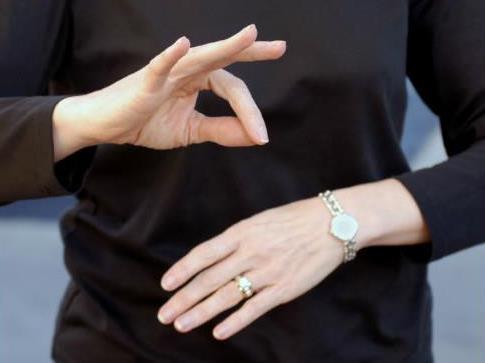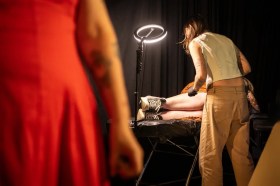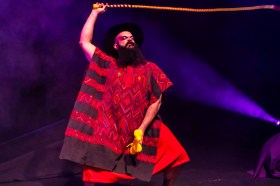Image: www.lifeonwheels.org
Leadership is defined as providing guidance or stewardship. It is perhaps unsurprising then that people with disability are rarely viewed as potential leaders, given the limited control we often have over our own lives and the fact that people with disability are either portrayed in the media as helpless and in need of charity or as heroes and objects of inspiration. So when former Arts Access Australia CEO, Kate Larsen, stepped down from the role because she believed that AAA should be led by a person with disability, reactions were mixed. There were those who applauded her actions, those who felt that it was irrelevant whether AAA was disability-led and, bizarrely, even those who thought Kate would do better to acquire her own impairment and continue in the role!
Still, step down she did and I was selected to fill the role. It is an enormous privilege every single day, but it didn’t have to be me. I meet many people with disability across the country who could be extraordinary and compelling leaders of arts organisations, whether they be arts and disability organisations or large performing arts venues or galleries. All of them have the capacity to lead if barriers are removed to enable them to make that contribution. The question of why there are not more opportunities for leaders with disability is a complex one, but perhaps the responses to Kate’s decision provide some insight into the discomfort that still surrounds the notion of disability leadership. It is a question that goes to the heart of my decision to research UK models of disability leadership in the arts later in the year, thanks to an Executive leadership grant from the Australia Council. In a recent ArtsHub article, “Inclusive Theatre, Beyond the Ghettos”, Katrine Gabb writes that Daryl Beeton, Artistic Director of Kazzum Theatre in London, noted that UK artists had needed to take a hardline approach to fight for equality in the past but that this was no longer necessary. Given the significantly higher proportion of leaders with disability in the UK than in Australia, it would seem that their approach has paid dividends and I hope to bring strategies back to Australia that can help us move in this direction.
But the question I am often asked, even after almost two years in this role, is why it matters whether we have leaders with disability. In a speech I made at the 2012 Arts Activated conference, one month after I commenced in this role, I suggested that failure to ensure leadership opportunities are open to people with disability was ‘not only a waste of first-hand knowledge and experience and a waste of talent, it is also sending the subtle message that on some level, the perception remains that people with disability are less capable, less qualified and less important as a voice for change in this sector, in spite of the lived experience which informs their leadership.’ I need to be very clear, I am not suggesting that there is no place for non-disabled allies or that we should be creating ghettos, only that leadership by people with disability needs to be increased so that our arts and cultural leadership mirrors the make-up of our society, in which 20% of us are people with disability.
There are many other reasons why leadership by people with disability matters. It is more likely to build inclusive organisations which makes artistic and economic sense. Everything from inclusive programs and audience experiences to influencing the artistic process such as through the employment of artists with disability or the production of work informed by the experience of disability (disability art.) It means that young people with disability have access to role models who they can learn from and be inspired by so that they grow in confidence as future leaders. But perhaps most importantly, it gives people with disability a seat at the decision-making table so that they have a real and authentic position from which to speak and give voice to the aspirations and needs of people with disability, an opportunity that benefits all Australians, (not just people with disability) but that is all too often lacking in our sector.
As a result of ongoing advocacy from Arts Access Australia and the arts and disability sector, the Australia Council has thankfully acknowledged the limited pathways to leadership and leadership opportunities for people with disability and begun to invest in this area. UK consultant Jo Verrent will work with 12 leaders in an intensive training and coaching program exploring the interaction between disability and leadership. More details can be found at:
http://www.australiacouncil.gov.au/grants/2014/Jo-Verrent-Sync-Leadership-Program
Last month, Jo also delivered forums in Brisbane, Sydney, Melbourne and Adelaide on the subject of disability leadership. They focused on the transformative impact of employing people with disability as leaders, not for them as individuals, but ‘for the invigoration of cultural strategy, for the benefit of all.’
Happily, this activity, along with my own research, is making disability leadership in the arts a hot topic at present. Jo Verrent believes that ‘different’ is delicious, not divergent; that it adds vibrancy and texture within the creative sector. So bring it on. I truly hope Australia is ready for the inevitable cultural shift towards increased disability leadership and all the exciting artistic and social opportunities it affords us.





